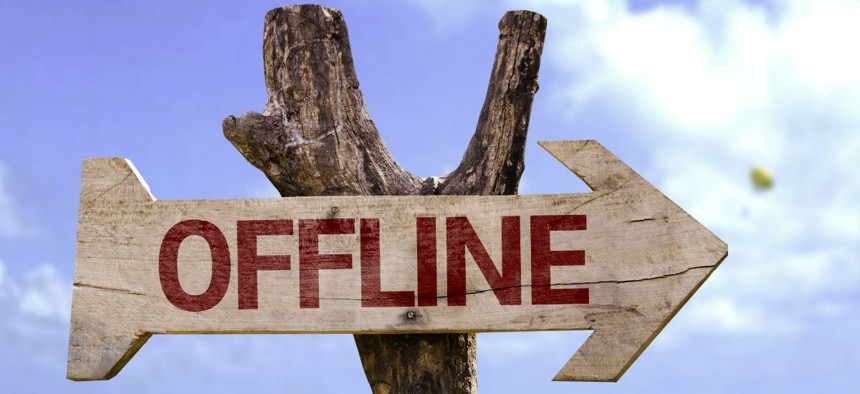
Gustavo Frazao/Shutterstock.com
Why You Shouldn't Have 'Limited Access to Email' While On Vacation
You need a break. Here are three easy ways to really unplug while you're away from the office.
One of the big reasons you need a vacation this summer is to take a break from the chronic state of fight or flight that an overworked and overwhelmed lifestyle generates. By doing some quick math based on email statistics collected by the Radicati Group, I’m ball parking that the average business person gets 113 emails per day. When I ask the people in my leadership workshops how many they get in a day the responses are usually in the range of 200 to 300. Whatever the actual number is, for most professionals, it’s a lot.
All of that constant input ends up putting your sympathetic nervous system in a state where it’s constantly generating a sense of threat. That’s what leaves you in a chronic state of fight or flight. If left unchecked, the impact of that on your productivity and your health and well being is pretty devastating. When your blood pressure and stress hormones spike and stay there and your digestive and immune systems drop and stay there, bad things happen.
Your vacation goal should be to do things that activate your rest and digest response (your body’s parasympathetic nervous system) so that you can relax while you’re away and set yourself up for a saner approach to work and life when you come back. If you’re one of those people who are getting 100 or more emails a day, here are three ideas on how to unplug so you remove that source of stress while you’re away (and none of them involve throwing your smartphone in the pool):
Make your out of office message a real thing. Don’t be one of those people who “will have limited access to email while I’m away” and then responds to an incoming message five minutes after you get it. Instead, set up a rule in your email manager that sends all of the incoming you get while you’re away to a special vacation folder in your inbox. When you get back to the office, don’t open it. Wait on people to follow up with you when you get back. Only access the folder when you have to follow up on something someone is asking you about. After you’ve been back a month, delete the whole folder. Following this strategy will allow to relax without worrying about the 1,000 emails you’ll have to plow through when you get back. Now you won’t have to.
Designate a backup. While we’re on the subject of out of office messages, designate a backup who’s got you covered while you’re away and include his or her contact info in your message. Of course, you’ll want to get your backup’s buy-in and brief them on what’s going on before you leave. While you’re away, they’re going to cover your conference calls and handle any emergency situations that come up. (And, realistically, what’s the likelihood that there’s going to be an emergency? Do you have one every week? If you do, there’s a bigger issue there.) Ideally, your backup should be the only person at the office who has your cell phone number. If there’s a real emergency that they need your input on, they’ll call. My guess is there probably won’t be and they won’t call.
Read a real book while you’re away. The tactile feel of turning pages while you’re sitting by the pool will take you away. Stay away from all screens other than sun screen.
The point here is to disrupt your digital routine. The best case scenario is to take a complete break from email while you’re on vacation. If you can’t imagine doing that, set aside a limited amount of time in the afternoon to check in and then leave your phone in airplane mode the rest of the time. Don’t check your emails in the morning as it will just have you thinking about work all morning and you’re more likely to get sucked in.
Your best bet, though, is to follow the first few tips here and not check email at all while you’re on vacation. For extra rest and digest bonus points, stay off of Facebook, Twitter and Instagram too. You’ll probably go through some withdrawal pains the first couple of days but you’ll be amazed by how much better you feel by the end of the week.
(Image via Gustavo Frazao/Shutterstock.com)







